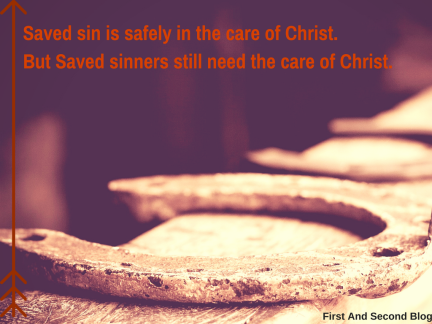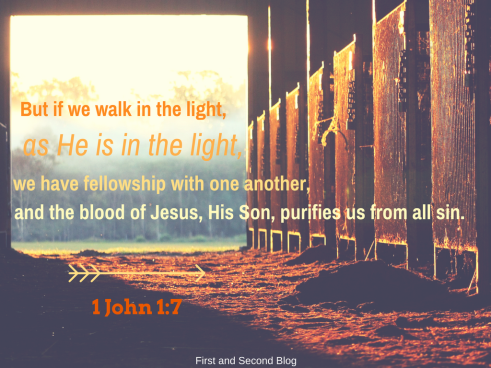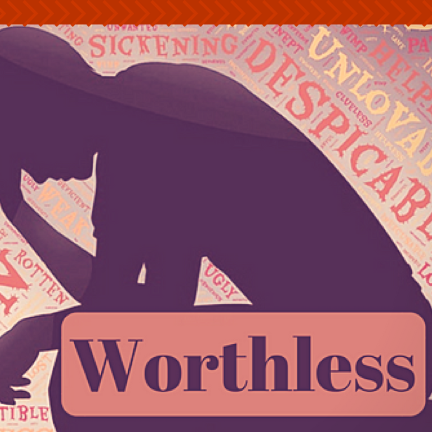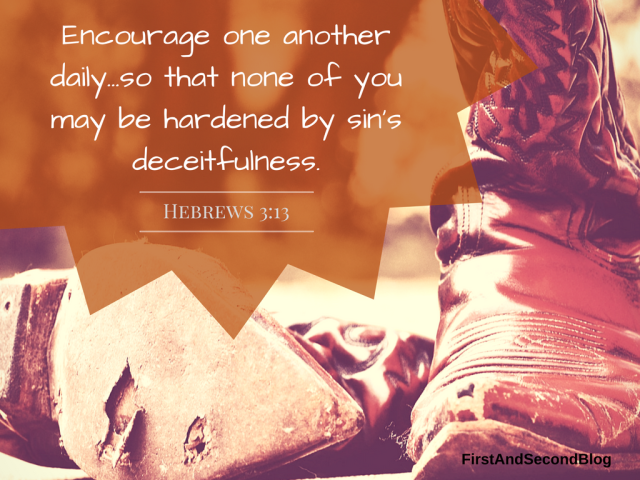(A series on lies sin tells us to tempt us and trick us. Read the whole series here.)
We don’t like to look sin in the face and see it for what it is.
We’re tempted by it, yes. We have a propensity for it, yes. But we really hate to face it.
I remember one of the first times I did.
Case Study: The Christian Who Didn’t Need Saving Early in our relationship, my husband and I kicked back in campus center arm chairs and slipped into conversation about God. I wasn’t saved, but as best I knew, I was a Christian. My understanding of sin was wrapped in false humility and security. It was boxed in liturgical or experiential confession. My sin content was stuffed, I believed, with mere mistakes and results of others’ crimes against me. I kept it hidden behind my good deeds and spiritual talk. But my then-boyfriend went digging. He showed me his sin stuff. With a big smile on his face, I remember him pointing to the floor like his sin was laid bare there. Then he pointed up and told me to understand the heights of Christ’s love and forgiveness meant understanding the depths of sin. He didn’t ask me to expose my secret stash to him, but he demonstrated a reason compelling me to expose it to God. Bringing sin into the light of Christ shows us what we are saved from, and by whom. It’s a glorious, relieving, revitalizing exposition.
To keep sin in the dark, once a believer, is a bit like sitting in a hospital after surgery pretending you have no wound, no treatment to complete, no therapy to continue to work through.
Though the problem is taken care of, the effects are still to be dealt with. The wound needs to be seen, addressed, and cared for. It’s in the hard work of tending to exposed weakness that we heal.
That’s what bringing sin out of the dark into Christ’s light is all about: healing.
Believers still have mess and hurt and sin to face. But in all our still present darkness and pain, we also know the light, the healer. We know Him, and we know the warmth of His illumination- even in the cold of sin.
Saved sin is safely in the care of Christ.
But Saved sinners still need the care of Christ.

In Charles Spurgeon’s words:
“We often forget that the Author of our faith must be the Preserver of it also…We have a strong argument to plead, for it is His own work of grace that we ask Him to strengthen—‘the power . . . by which you have worked for us.’ Do you think He will fail to protect and provide that?
There’s a reason He sent the Holy Spirit to help believers. Saved sinners still need God. In them, with them, every day.
Now forevermore reconciled to God, believers can be unhindered by shame and the bounds of saved sin. Believers can enjoy fellowship with God, stewarding their lives as those abiding in Him.
Through abiding, even addressing and confessing to God our saved sin, we “walk in the light” of Christ.
In the light, we can “have fellowship with one another, and the blood of Jesus, his Son, purifies us from all sin” (1 John 1:5-7.)

Sin thrives in the dark.
Come into the light where Christ is, where sin is forgiven, shame is disintegrated, and facing the truth means looking full in the face of our loving Savior.
This post may also be shared on: #MomentsofHope #TestimonyTuesday, #RaRaLinkup, #TellHisStory, #Thought-Provoking Thursday, #Heart Ecnouragement, #DanceWithJesus, #LLMLinkup, Faith-Filled Friday, Sitting Among Friends, and #SoulSurvivalLinkup.

















